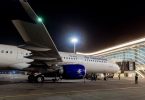The study added that visitors to wildlife parks established among the 6 member states of the East African bloc had declined significantly by about 65 percent, impacting a negative impact on wildlife conservation in the region.
From March 2020 when the first cases of COVID-19 were reported in the EAC region, 4.2 million foreign tourists were unable to travel to their preferred safari destinations in East Africa.
The study that was conducted by EABC with the support of the African Economic Research Consortium and the Bill & Melinda Gates Foundation is aimed at assessing the impact of COVID-19 on the tourism and hospitality industry and policy options to protect tourism sector players from COVID-19 disruptions and future pandemics.
The impact is reflected in massive reductions in international tourist arrivals, receipts, jobs, visitors to parks, and hotel occupancy rates, said the study.
The study reveals that hotels in the region registered average occupancy rates of below 30 percent, affecting their operations significantly including maintaining staff.
It recommends for tourism destinations to have pandemic preparedness and risk management plans to minimize such instances in the future.
The study shows that tourism which contributed an average of 9.5 percent in Gross Domestic Product (GDP) in 2019 and an average of 17.2 percent to EAC total exports, was one of the most affected business sectors in the region.
The report indicates that businesses turned to borrowing as the only means to fund their running expenditures such as rent and utilities due to reduced operational capital while the loss of jobs saw a decline in household incomes, as EABC Vice Chairman Mr. Dennis Karera noted that the study will contribute to developing macro-economic policy options for consideration and adoption by EAC Partner States.
“Adopting an EAC coordinated approach in reviving the tourism sector by marketing the region as a single tourist destination, opening EAC skies, rolling out national-wide vaccination drives and mutual recognition of COVID-19 test certificates in the region is certainly critical,” he said.
Tourism stakeholders are calling for the sustaining of stimulus packages provided by EAC Governments to re-engineer and re-define the tourism products by also leveraging digital technologies in tourism marketing and promotion, the study said.
African Tourism Board (ATB) President Alain St. Ange said in his Labour Day message to the world that the International Workers’ Day this year must be marked by the reflection of the health crisis being faced around the world and the hardship being felt by the most vulnerable.
“The world is not created equal. This is seen in Africa more in most parts of the world,” said the African Tourism Board President, reflecting on this reality and calling for stakeholders to see the realities.
“We know that Africa, and the world at large for that matter, continues to be ravaged by the effects of COVID-19 which has resulted in serious job losses. The inability of families to find work in this time of COVID-19 must remain at the forefront of our thoughts,” the ATB President said.
“The African Tourism Board remains committed to working for its 54 countries that make Africa the great continent it is. Together, we shall see the light at the end of the dark COVID-19 tunnel,” St. Ange noted in his Labour Day Message.
#rebuildingtravel






















